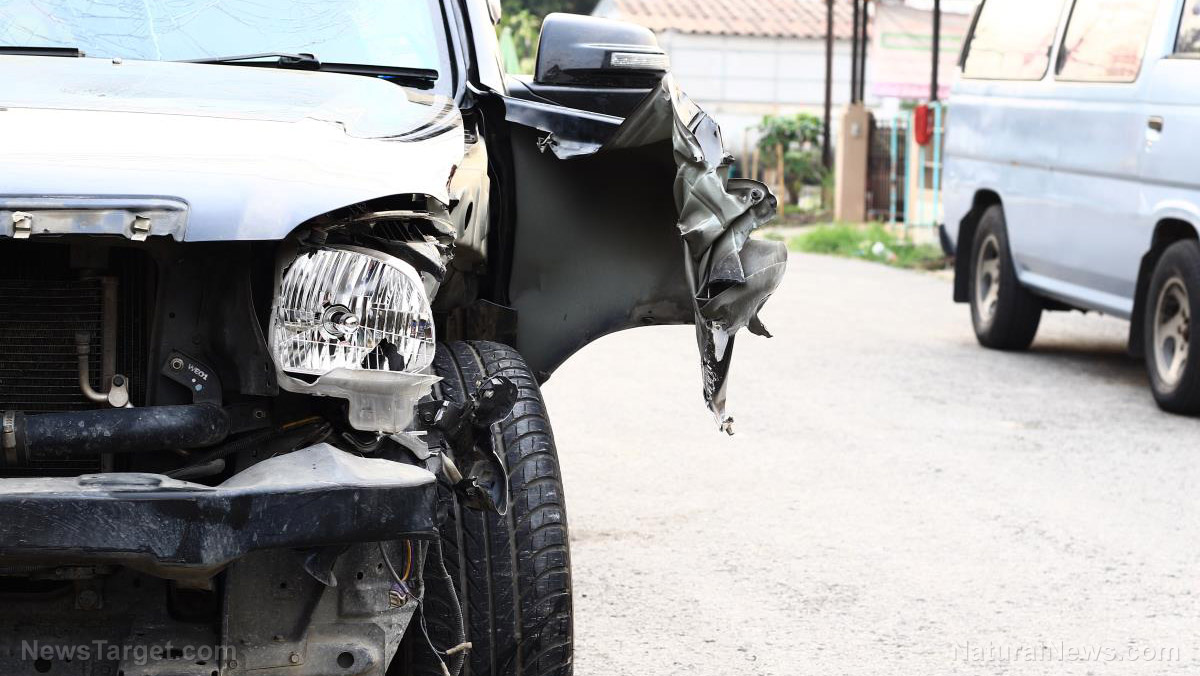
President Joe Biden's infrastructure bill includes a provision that will force all newly made vehicles in the United States to have kill switches.
Biden's infrastructure bill, officially known as the Infrastructure Investment and Jobs Act, became law after passing through Congress in late 2021. According to former U.S. Attorney and Republican Rep. Bob Barr of Georgia, buried within the 2,702-page infrastructure legislation is a rider that will take effect five years after its passing, or in 2026. (Related: "Breathalyzer"-style tracking devices to be required in all cars by 2026… does this mean they will also require proof of vaccination before your car will be allowed to start?)
"The choice as to whether a vehicle can or cannot be driven – for vehicles built after 2026 – will rest in the hands of an algorithm over which the car's owner or driver have neither knowledge nor control," wrote Barr in an opinion piece for the Daily Caller.
This added provision was marketed to Congress as a benign "safety" tool that will help prevent drunk drivers from causing fatal accidents. The measure mandates that automobile manufacturers in the U.S. install into every car a "vehicle kill switch."
According to Barr, there are very serious legal issues that come with allowing this mandate to be implemented without challenge.
Most important among these concerns is the potential violations this mandate may make with regard to the Fifth Amendment's right to not self-incriminate and the Sixth Amendment's right to face one's accuser.
We are building the infrastructure of human freedom and empowering people to be informed, healthy and aware. Explore our decentralized, peer-to-peer, uncensorable Brighteon.io free speech platform here. Learn about our free, downloadable generative AI tools at Brighteon.AI. Every purchase at HealthRangerStore.com helps fund our efforts to build and share more tools for empowering humanity with knowledge and abundance.
Barr added that this concern added to the constitutionally questionable vehicle-related enforcement methods already used by federal, state and local governments, "such as traffic cameras and license plate readers."
Car kill switch mandate "a privacy disaster in the making"
In his opinion piece, Barr pointed out that the wording of the rider strongly implies that this driving quality surveillance system "will always be on and constantly monitoring the vehicle."
"The system must connect to the vehicle's operation controls, so as to disable the vehicle either before driving or during when the impairment is detected," he noted. Furthermore, Barr added that this system will likely have a backdoor that could provide the authorities with the means to remotely access the vehicle's data at any time. This presents with it the possibility that illicit third parties could also use this backdoor for nefarious means.
"This is a privacy disaster in the making, and the fact that the provision made it through Congress reveals – yet again – how little its members care about the privacy of their constituents," wrote Barr. "The lack of ultimate control over one's vehicle presents numerous and extremely serious safety issues; issues that should have been obvious to members of Congress before they voted on the measure."
Barr noted that there will be situations wherein the driving of a person would be affected despite not being under the effects of alcohol.
"What if a driver is not drunk, but sleepy, and the car forces itself to the side of the road before the driver can find a safe place to pull over and rest?" wrote Barr. "Considering that there are no realistic mechanisms to immediately challenge or stop the car from being disabled, drivers will be forced into dangerous situations without their consent or control."
The former congressman noted that Congress failed to define what it means by a driver being "impaired."
"Does it mean legally drunk, or perhaps under the limit, but still 'impaired' to a degree?" he asked. He also asked whether or not the system will automatically summon local law enforcement to make the determination or if the system itself will handle this.
"These are questions that should have been addressed openly and thoroughly during the legislative process, not left to later, backroom negotiations between interested parties other than individual car buyers – manufacturers, regulators, insurance companies and law enforcement," he wrote.
Learn more about government vehicle policies at RoboCars.news.
Watch this short video discussing the controversy surrounding the new car kill switch mandate.
This video is from the PureTrauma357 channel on Brighteon.com.
More related stories:
Sources include:
Please contact us for more information.




















